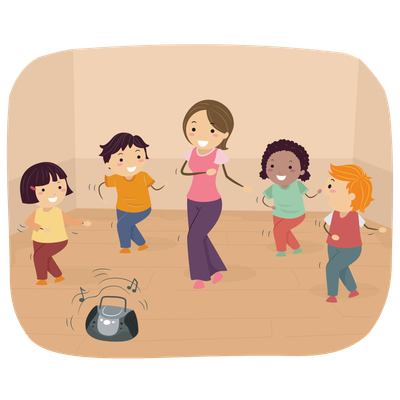Special programs
01
Regular program
02
Sports programs
03
Montessori program
04
Early foreign language learning program
05
Preschool program
06
Religious program
07
Gift program
08
Drama program
09
Rhythmics and dance program
Regular program
The Žižula Kindergarten runs a regular 10-hour program for children from the age of one until they start school.
It is a regular program of early and preschool education which aims to enable full and harmonious development of the child's personality, by creating a creative and stimulating environment in which each child will be able to express their potential.
The task of the program is to provide equal opportunities to meet developmental and educational needs in order to encourage children to develop skills, abilities, values and attitudes necessary for successful functioning in a social environment.
The program is implemented by educated educators, who plan and implement pedagogical work in accordance with the laws of growth and development and the interests of children.
It is a regular program of early and preschool education which aims to enable full and harmonious development of the child's personality, by creating a creative and stimulating environment in which each child will be able to express their potential.
The task of the program is to provide equal opportunities to meet developmental and educational needs in order to encourage children to develop skills, abilities, values and attitudes necessary for successful functioning in a social environment.
The program is implemented by educated educators, who plan and implement pedagogical work in accordance with the laws of growth and development and the interests of children.
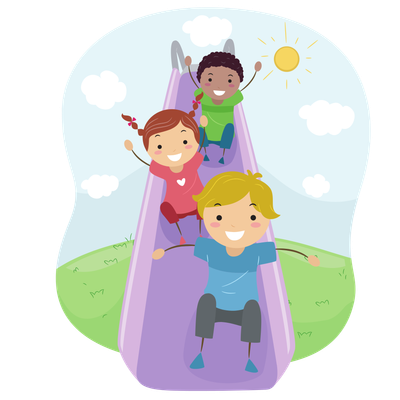
Integrated Sports Program & Shorter Sports Program
Given that modern life is characterized by insufficient movement and sedentary lifestyle, the goal of sports programs for children in early and preschool education is to positively influence the overall development of the child and develop a culture of living.
The task of sports programs is to encourage the development of health culture with the aim of improving health, healthy lifestyles and personality development by creating a positive image of yourself.
The integrated sports program and the shorter sports program start from the developmental needs and possibilities of children of early and preschool age. The programs are realized in polyvalent halls and an outdoor playground, under the expert guidance of a master of kinesiology.
Through sports programs, children develop and improve their natural movement skills, and through play they acquire the values and competencies necessary for successful coping in social life.
The task of sports programs is to encourage the development of health culture with the aim of improving health, healthy lifestyles and personality development by creating a positive image of yourself.
The integrated sports program and the shorter sports program start from the developmental needs and possibilities of children of early and preschool age. The programs are realized in polyvalent halls and an outdoor playground, under the expert guidance of a master of kinesiology.
Through sports programs, children develop and improve their natural movement skills, and through play they acquire the values and competencies necessary for successful coping in social life.
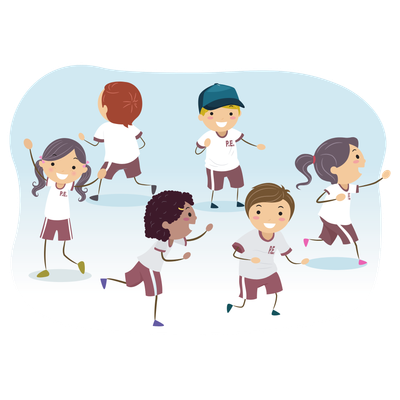
Montessori program
Montessori pedagogy has a long tradition around the world as an early and preschool education program or elementary school program.
Montessori pedagogy advocates a unique approach to the child according to which the child develops in a way that acquires knowledge in different areas of life.
Unique learning methods are applied in which the emphasis is on the child's independent and spontaneous learning through discovering the environment.
Each child independently establishes the pace of work and the content he / she deals with, which influences the development of self-discipline.
The goal of the Montessori program is to encourage physical, psychomotor, socio-emotional, cognitive development of the child and the development of communication skills, expression and creativity.
Montessori pedagogy advocates a unique approach to the child according to which the child develops in a way that acquires knowledge in different areas of life.
Unique learning methods are applied in which the emphasis is on the child's independent and spontaneous learning through discovering the environment.
Each child independently establishes the pace of work and the content he / she deals with, which influences the development of self-discipline.
The goal of the Montessori program is to encourage physical, psychomotor, socio-emotional, cognitive development of the child and the development of communication skills, expression and creativity.
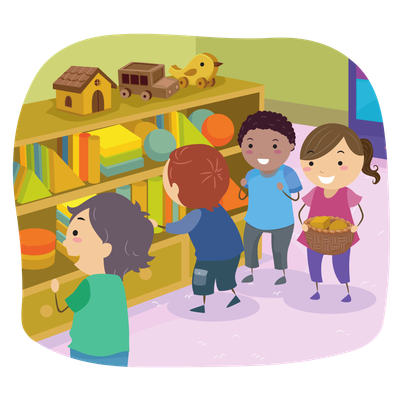
Early foreign language learning programs
Learning a foreign language at an early and preschool age can serve as a stimulating means of development in terms of communication skills, but also the development of intercultural dialogue and understanding of diversity. In addition to the above, the period up to the seventh year of a child's life is crucial for language development, since after the seventh year the brain's ability to learn a foreign language gradually weakens.
Žižula Kindergarten implements early foreign language programs through: an integrated program of early English language learning, and a short program of early English language learning.
The aim of these programs is to encourage the development of foreign language languages in order to actively stimulate interest in communication, understanding and expression in a foreign language and thus foster a positive attitude towards other language expressions, cultural heritage and customs.
In early foreign language learning, a situational approach to learning is applied, which enables children to get to know, understand and use language in everyday situations through play.
Žižula Kindergarten implements early foreign language programs through: an integrated program of early English language learning, and a short program of early English language learning.
The aim of these programs is to encourage the development of foreign language languages in order to actively stimulate interest in communication, understanding and expression in a foreign language and thus foster a positive attitude towards other language expressions, cultural heritage and customs.
In early foreign language learning, a situational approach to learning is applied, which enables children to get to know, understand and use language in everyday situations through play.
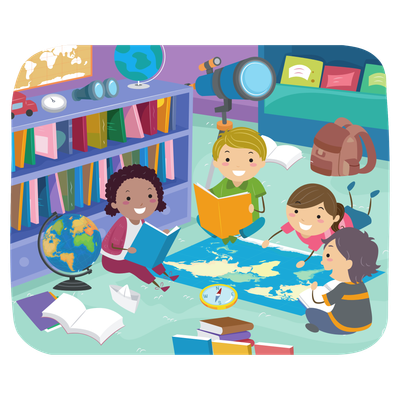
Preschool program
The preschool program is preparing a child for school in terms of strengthening communication and social skills and developing a positive self-image. Through the activities of the preschool, the development of knowledge and skills necessary for successful inclusion in the first grade is influenced in order to ensure the most natural transition from kindergarten to school.
The goals of the preschool program are to provide children with a favorable environment in which it will be possible to meet the child's current developmental needs and encourage all aspects of the child's development.
Since the first impression of school influences the development of attitudes towards learning, the importance of schooling and creating an image of oneself, it is important that the child through the preschool program improves their abilities and characteristics that will help him cope with new situations.
The preschool program is intended for children who are not included in the forms of early and preschool education, and are school students in the next school year.
The goals of the preschool program are to provide children with a favorable environment in which it will be possible to meet the child's current developmental needs and encourage all aspects of the child's development.
Since the first impression of school influences the development of attitudes towards learning, the importance of schooling and creating an image of oneself, it is important that the child through the preschool program improves their abilities and characteristics that will help him cope with new situations.
The preschool program is intended for children who are not included in the forms of early and preschool education, and are school students in the next school year.
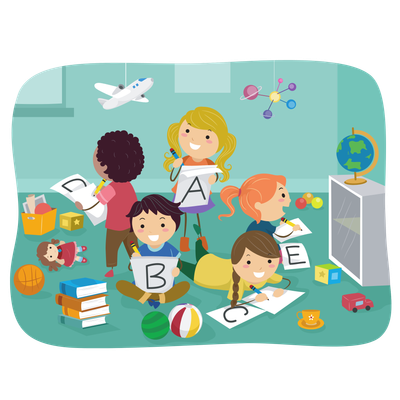
Religious program
The contents of the Religious Program encourage children to experiential learning, observation, observation and research, thus helping them to develop knowledge about themselves, others and the world through a stimulating organized environment. The contents are realized through different types of interaction of the child in the immediate environment and various activities such as life-practical, work, research-cognitive, various games, activities with movement, social-entertaining, artistic, expression and creation. At the heart of all these activities is play as a way for a child to encounter religious content.
The goal of the Religious Program is to develop the child's religious dimension, enabling him to discover, accept and shape life in relation to himself, others and in a way appropriate to God.
The program is implemented by educators in the faith who have the professional knowledge, sensitivity to identify the child's needs and take timely and correct actions.
The goal of the Religious Program is to develop the child's religious dimension, enabling him to discover, accept and shape life in relation to himself, others and in a way appropriate to God.
The program is implemented by educators in the faith who have the professional knowledge, sensitivity to identify the child's needs and take timely and correct actions.
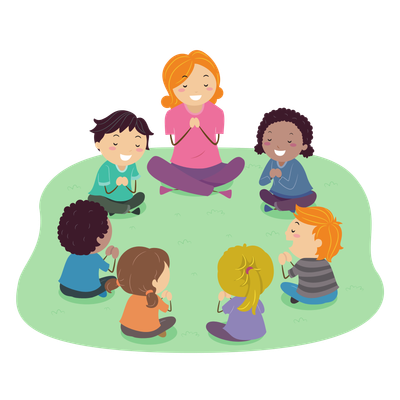
Gift program
Starting from the fact that all preschool children are potentially gifted, our task is to optimally encourage the development of all children's opportunities through the creation of a stimulating and stimulating pedagogical environment.
The goal of the program is to create an environment that will recognize, support and encourage development and learning through activities arising from the child's area of interest.
Although it is difficult to fully identify giftedness in preschool, assessing potential giftedness will interpret observations of a child’s development through giftedness detection areas:
The goal of the program is to create an environment that will recognize, support and encourage development and learning through activities arising from the child's area of interest.
Although it is difficult to fully identify giftedness in preschool, assessing potential giftedness will interpret observations of a child’s development through giftedness detection areas:
- social competence
- motivation to work
- spatial thinking
- logical thinking
- language skills
- sports skills
- practical skills
- musical skills
- creativity
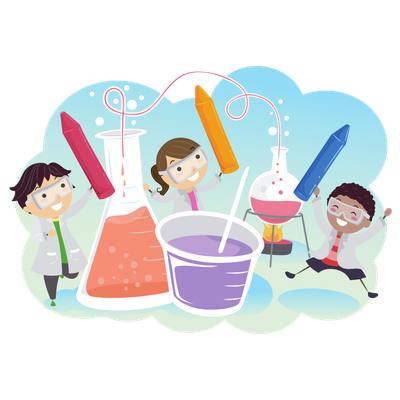
Drama program
The positive experiences gained so far in this field have prompted us to work and design this program to enable all children, and especially children who are interested in dramatic - performing arts, more meaningful, active and systematic participation in education through art.
The program wants to start with art from an early age and develop artistic sensibility through play, which is the child's basic expression and driving force, and which in synergy with activity encourages creativity. social, emotional and mental awareness and develop speech fluency, self-esteem and self-discipline.
The basic goal of the program is to positively influence the overall growth and development of the child through dramatic and stage creation whose function is to prepare a favorable pedagogical context that will encourage and develop artistic and aesthetic sensibility, which is a potential basis for later artistic attitude.
The program wants to start with art from an early age and develop artistic sensibility through play, which is the child's basic expression and driving force, and which in synergy with activity encourages creativity. social, emotional and mental awareness and develop speech fluency, self-esteem and self-discipline.
The basic goal of the program is to positively influence the overall growth and development of the child through dramatic and stage creation whose function is to prepare a favorable pedagogical context that will encourage and develop artistic and aesthetic sensibility, which is a potential basis for later artistic attitude.
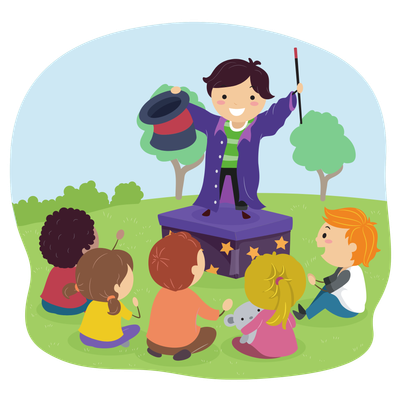
Rhythmics and dance program
From the third year of a child's life, the child's ability to move increases. They are able to perform movement faster, more deftly and accurately and differentiate the direction of movement in space. Accordingly, the rhythm and dance program is conducted with children from the third to the seventh year of life.
The goal of the rhythm and dance program is to positively influence the overall development, upbringing and learning of the child through movement as an expressive medium of dance art.
The objectives of the program are to support children's interest in dance as a natural form of expression, positively influence the development of motor skills, improve motor skills and personal and emotional well-being of children, and encourage the development of sensitivity to rhythm and music, imagination, and creativity through movement as an expressive medium.
The goal of the rhythm and dance program is to positively influence the overall development, upbringing and learning of the child through movement as an expressive medium of dance art.
The objectives of the program are to support children's interest in dance as a natural form of expression, positively influence the development of motor skills, improve motor skills and personal and emotional well-being of children, and encourage the development of sensitivity to rhythm and music, imagination, and creativity through movement as an expressive medium.
